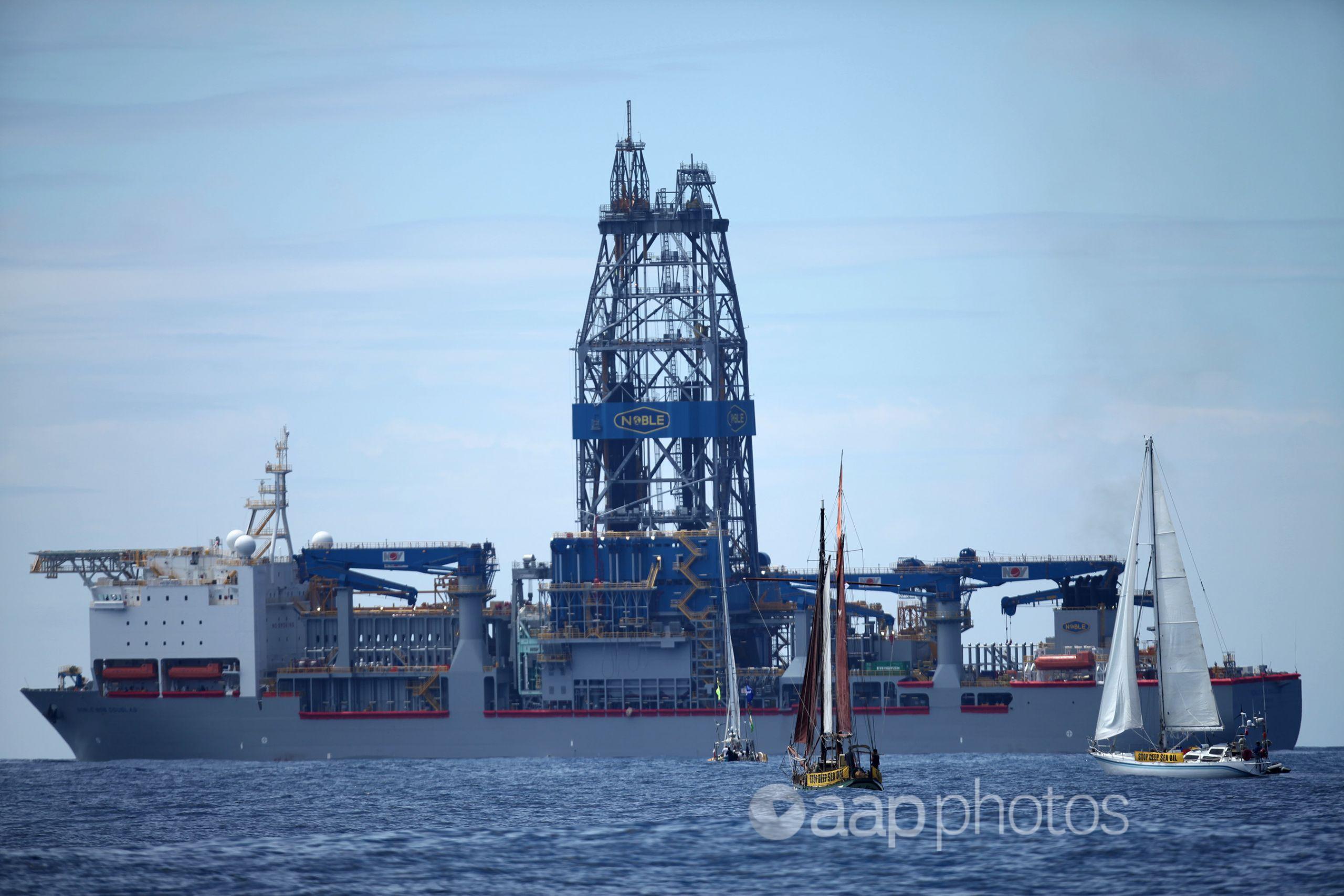AAP FactCheck Investigation: Has the New Zealand government’s ban on new offshore oil and gas exploration resulted in an increase in energy prices and a rise in the consumption of imported coal?
The Statement
“Over the past two years we have witnessed a steady increase in energy prices and increased consumption of imported coal as a result of Labour’s ill-thought-out oil and gas ban.”
Jonathan Young, NZ National MP, September 19, 2020.
The Analysis
The New Zealand government’s ban on new offshore oil and gas exploration has come under fire, with the National Party claiming it has led to increased energy costs and a rise in coal consumption.
In April 2018, the Labour government announced it would not issue any new permits for offshore oil and gas exploration. The policy became law in February 2019.
National announced its election energy policies on September 19, when party spokesman Jonathan Young told RNZ it would reverse the ban.
“Over the past two years we have witnessed a steady increase in energy prices and increased consumption of imported coal as a result of Labour’s ill-thought-out oil and gas ban,” Mr Young said.
AAP FactCheck examined Mr Young’s statement that the ban had led to an increase in both energy prices and the consumption of imported coal.
The Ministry of Business, Innovation and Employment (MBIE) publishes regular figures on the prices of fuel and electricity, and coal imports and consumption.
Figures for the year to June show average petrol prices, after adjusting for inflation, rose 0.86 per cent when compared to the year to June 2018.
Over the same period, retail diesel prices were up 2.8 per cent but commercial diesel prices were down 4.3 per cent. Fuel oil prices dropped 9.4 per cent.
Average gas prices for residential, commercial and industrial users all fell, while there was a small increase in wholesale prices. For example, residential prices were 11.3 per cent lower in 2019/20 than in 2017/18.
Many of the energy prices that did increase failed to do so at a steady rate. In the case of petrol prices, the average cost spiked in 2018/19 before falling back 5.3 per cent again in 2019/20.
MBIE monitors residential electricity prices by tracking total nationwide residential electricity sales.
The sales monitor shows the average price of electricity for the year to March fell three per cent on the 2017/18 figures, after adjusting for inflation.
Electricity Authority data shows wholesale electricity prices were 27.3 higher in the year to September 2020 than the same period two years prior. Prices were also highly volatile, spiking in October 2018 before falling again.
Figures for the year to June show coal imports of all types increased by 121 per cent between 2017/18 and 2018/19 then decreased 25 per cent the following year. Overall, there was a 65.8 per cent increase over the two years. Consumption fell marginally, decreasing by 0.3 per cent.
But did the government’s ban on new offshore oil and gas exploration have any impact on these prices or coal imports?
The Parliamentary Commissioner for the Environment (PCE) investigated the impact of the government’s oil and gas exploration ban and found it was likely to have an impact on gas and electricity prices only once the current exploration and mining permits expired (page 36).
It added that any short-term increases in natural gas and electricity prices had likely been the result of outages at the Pohokura gas field and “deliverability constraints”.
The PCE said modelling indicated the ban could increase gas prices, but the impact was “likely to be partially subdued to 2050” (page 37) due to lower consumption.
MBIE’s latest annual report on the trends in the energy sector doesn’t mention the oil and gas exploration ban in its summary of the main factors affecting the sector. It identified the key elements influencing the sector as outages at the Pohokura gas field and a volatile oil market due to geopolitical events (page 1).
It said gas production was expected to increase in the near future before steadily declining, while oil production was expected to decline (page 43).
University of Auckland senior economics lecturer Stephen Poletti, who specialises in the energy sector, said because New Zealand exports most of the oil it produces and consumes imported oil, the ban on offshore oil exploration was unlikely to have an impact on local prices.
He said a reduction in domestic gas supply could have an impact on prices, however the exploration ban was not expected to impact supply for at least 10 years.
“The possibility of a supply reduction in 10 years time impacting prices today is very hard to imagine,” Dr Poletti said, adding that any increase in electricity prices was due to a reduction in hydro electricity generation caused by drought.
Chair of the Sustainable Energy Systems department at Victoria University of Wellington Professor Alan Brent said “there is no correlation between the oil and gas exploration ban and energy prices”.
He said the decrease in hydroelectricity generation had led to a short-term increase in coal imports as coal-powered generation was used to make up the shortfall, and this had increased electricity prices.
“But consumption of coal outside of electricity generation, for industrial processes, has gone down, and the price is dictated by international movements,” Prof Brent said.
Mr Young told AAP FactCheck his statement was only referring to the price of wholesale electricity and natural gas, and the consumption of imported coal at the Huntly Power Station – NZ’s only coal-fired power station – which he said had increased.
He said a reduction in the supply of gas could increase prices and lead to the power station burning more coal, which would increase electricity prices and coal consumption and imports.
MBIE figures show coal-powered energy generation was up 51.6 per cent in the year to June 2020 when compared to the same period in 2017/18. Gas-fired generation was down 10.2 per cent.
However, it is not clear that the ban on offshore gas exploration had resulted in a reduction in gas-powered generation in favour of coal as the Pohokura outages have been repeatedly identified as a key influence on supply.
Again, the changes were volatile, with coal-fired energy generation spiking in 2018/19 before dropping back again the following year.
Mr Young said it was difficult to prove the government’s oil and gas exploration ban had an impact on coal use and wholesale electricity prices. He did not provide any sources to demonstrate the claimed link.
The Verdict
AAP FactCheck found the statement that the government’s ban on new offshore oil and gas exploration resulted in an increase in energy prices and a rise in the consumption of imported coal to be mostly false.
Some electricity prices have risen while others have fallen, and fuel and gas prices have also experienced a mixture of increases and decreases. Coal imports have increased significantly but coal consumption has dropped slightly.
Energy industry experts and government reports indicate the oil and gas exploration ban was unlikely to have had a short-term impact on prices or coal consumption in the past two years. Other factors such as drought, gas field outages and global markets are likely to have been the main influences on price.
Mostly False – The claim is mostly false with one minor element of truth.
* AAP FactCheck is accredited by the Poynter Institute’s International Fact-Checking Network, which promotes best practice through a stringent and transparent Code of Principles. https://aap.com.au/
All information, text and images included on the AAP Websites is for personal use only and may not be re-written, copied, re-sold or re-distributed, framed, linked, shared onto social media or otherwise used whether for compensation of any kind or not, unless you have the prior written permission of AAP. For more information, please refer to our standard terms and conditions.


















